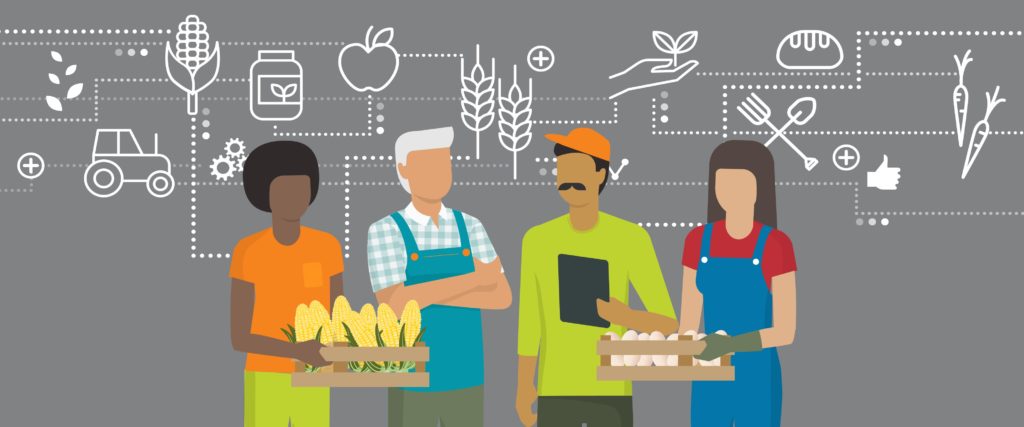Have you ever heard of the term “agvocate?” Well maybe you haven’t heard that word before, but you probably know an agvocate or maybe you are one! An agvocate is an agriculture advocate — arguably one of the most important roles in agriculture.
THE AGVOCATE TEST
- Do you constantly tell agriculture stories and talk about what life is like on the farm?
- Do you utilize the gifts of social media platforms to share those glamorous sunset shots out in the pasture that take your breath away? The picture of a freshly power-washed tractor glistening in all its glory? And of course, the famous selfie with your latest newborn animal?
- Are you constantly trying to wrap your head around why in the heck somebody wouldn’t want to be raised on a farm (because you have countless memories that made you into the person that you are today)?
- Do you feel like you spend a lot of time, defending either your livelihood or your family’s livelihood?
WELCOME TO THE AGVOCATE CLUB
If the points above sound a lot like you, welcome to the club — as a fellow agvocate and agri-marketing professional I’d like to offer some food for thought.
As farmers, we wear a lot of hats. We are the Albert Einstein of our land and crops. We know our soil make ups. We decide when it’s time to use cover crops, when to irrigate land, when to spray, when to practice no-till and so many other factors. We are the Rocky Bolboa of getting stuff done — working sunrise to sunset and even longer during planting and harvest seasons. And we are the Mother Theresa of caring for our livestock. After all, our family’s income depends on every single animal’s well-being.
But sometimes things go wrong. We spend sleepless nights — calving, farrowing, kidding — doing everything you can to give every newborn a chance only to lose them anyway. Sometimes we plan our planting and spraying meticulously only to have Mother Nature ruin our plans. When we think about how to reach consumers and how to connect with them, these are the kinds of life events that we should also be sharing.
TRUE AGVOCACY EMBRACES CHANGE
Agvocacy and agriculture marketing efforts should involve more transparency, recognizing that sometimes things are out of the ag industry’s control — we should always be open to ideas and solutions. We as agriculturalists can get so stuck in our ways that we are not open to others options and choices.
For example, we all know that meat can be an expensive food choice, and protein is important to our diets. But, the recent launch of the “ImpossibleTM Burger” by Impossible Foods stirred up a lot of negative talk in the agriculture community. The company said they created a better, meat-less hamburger patty using just plants.
Sure that can sounds a little crazy to most of us who love our juicy beef patties, and maybe it was the word “better” that rubbed us the wrong way. But consider the possible positive impacts that a plant-based protein can provide for world hunger, why not entertain the idea? If this product could reduce costs and help struggling families that’s a great thing! We don’t need to bash new ideas for fear of our market share — animal production will always be important and if meatless patties become in-demand they will need someone to grow the plants to make them, right?
DON’T FAULT THE UNEDUCATED (OR AT LEAST TRY NOT TO)
Consumers today are also more thirsty for knowledge than ever before; they want to understand where their food comes from and how it got to their plate. Can you blame them? As keepers of the agriculture flame, it is up to us to make a connection with those that are removed from the farm, not to decide what kind of food a consumer should be feeding their family .
It is up to us to have a conversation with classmates, coworkers and strangers sitting next to us on the plane to share what we do for a living. Not to instill in their brains that they need to love everything agriculture, but to be a person that they can ask questions to about things that they just don’t understand. For example, instead of getting mad when someone says they are anti-GMO — ask them to explain their rationale and then correct any misinformation with reliable resources and facts. The rest is up to them.
LET’S TAKE THE HIGH ROAD
If you are involved in agriculture, I challenge you be an agvocate that supports new ideas, corrects misinformation with facts and personal experiences, champions the importance of agriculture and answers the questions from critics and bystanders.
It’s easy to get frustrated, but it is up to us to have an open-door policy where consumers can learn. After all, we cannot fault the ones that haven’t experienced the magic of agriculture for simply not knowing the full story.
LF Newsletter Alert
Want Lessing-Flynn to rock the socks off your inbox with insights and more?




